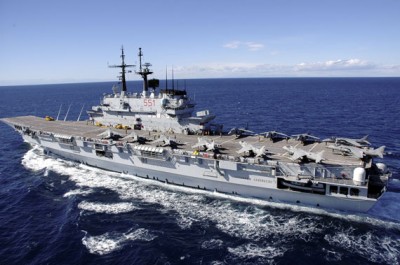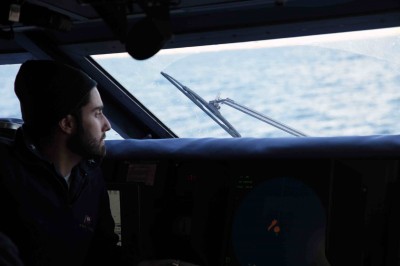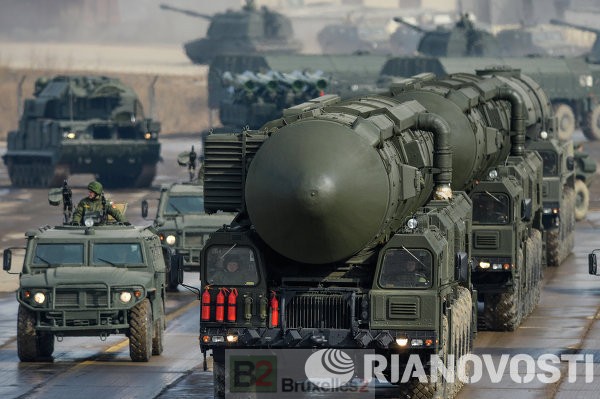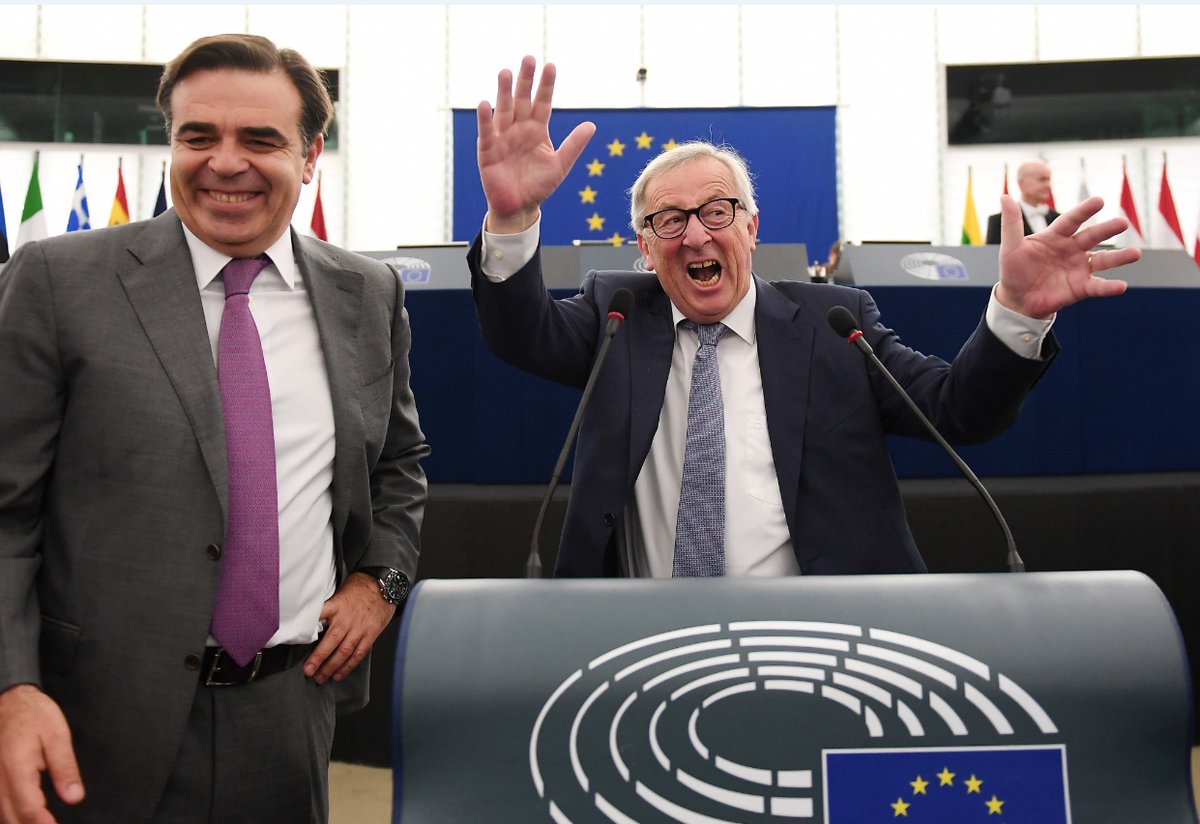operations in Libya. Who orders who? Who controls what? Synthesis (maj2)
(BRUXELLES2/Synthèse) On the military interventions in Libya, confusion reigns, skilfully maintained, by several of the actors of the file. There is not one operation in Libya but four, even five (if we count the Frontex mission). Tour of the owner(s)...
The distribution of tasks seems clear on four of these five missions. Operation "No Fly Zone" to come under NATO control on March 27th. In fact, all that remains is for the "protection of civilians", the sharing of tasks between NATO and the Coalition remains to be clarified (1). The first meeting of the contact group takes place in London on March 29, 2011. The advance of the opposition on the ground could facilitate and accelerate the search for a solution.
A sharing of means and a confusion of roles
Above all, you should know that there is no complete sealing between all these operations. Especially in terms of the means used. These (ships, planes and military/experts) essentially remain under the control of the Member States which only delegate - to varying degrees - command to multinational structures (NATO, EU, Coalition). As no country has unlimited resources, resources assigned to one operation can be used for another, particularly in terms of air intelligence or air surveillance. It is rather classic in certain international operations where several missions coexist. Thus in Chad, during the Eufor Tchad operation, the French planes carried out during the same exit missions called "Alpha" and "Bravo", one on behalf of Eufor Tchad, the other on behalf of of the Epervier national mission.
You should also know that the commanders have several hats. Thus Admiral Sam Lockwear, who currently commands Operation Odyssey Dawn (no Fly zone and protection of civilians)) is commander of the American naval forces of Africom and Eucom but also the NATO commander of the JFC (joint command) of Naples who will oversee and/or coordinate most of NATO's military operations in Libya. And he has as deputy General Bouchard who will take over the command of the "No Fly Zone" operation on behalf of NATO and will report to his hierarchical superior at NATO who is... Lockwear (2) .
sky control "No Fly Zone" (NATO)
 Goal : " ban all flights in the airspace of the Libyan Arab Jamahiriya in order to help protect civilians”
Goal : " ban all flights in the airspace of the Libyan Arab Jamahiriya in order to help protect civilians”
Code name: "Odyssey Dawn" (USA), "Harmattan" (France) / Ellamy (UK). Legal basis: §6 to 12 UN resolution 1973. Start: March 19, 2011. The mission comes under NATO control on Sunday March 27 (2). Duration: 3 months.
Political control: the ambassadors of the 28 member countries of NATO (NAC), extended to the other contributing countries. Commander: Lieutenant General Bouchard (Canada). Chain of command: NATO (SHAPE) / JFC Naples / Izmir Air Headquarters (Turkey) / CAOC Poggio-Renatico (Italy). Funding: Participating States / NATO Member States
Resources: Belgium, Denmark, United Arab Emirates*, Spain, France, Greece, Italy, Norway, Netherlands, Qatar*, United Kingdom, Turkey, USA.
The "protection of civilians" (Coalition / NATO)
Objective: to take “all necessary means to protect populations and civilian areas threatened with attack “, in particular the strikes on the military means of the regime.
Code name: "Odyssey Dawn" (USA), "Harmattan" (France) / Ellamy (UK). Legal basis: §4 UN resolution 1973. Start: March 19, 2011. Mission comes under NATO control Thu 31 Mar
Political control: Contact Group / NATO Ambassadors (NAC). Chain of command: NATO / USA (Africom) / Coalition.
Command structure: Africom HQ (Stuttgart) - USS Mount Whitney) - France (Lyon) - United Kingdom (Northwood) =>NATO (SHAPE) / JFC Naples / Izmir Air HQ (Turkey) / CAOC Poggio-Renatico ( Italy).
Commander: Admiral Sam Lockwear (USA) => Lieutenant General Bouchard (Canada).
Essential resources: France, United Kingdom.
Other means: Belgium, Canada, Denmark, Spain, Qatar*, USA
Controlling the arms embargo by sea (NATO)

Goal : " guarantee the strict application of the arms embargo, inspect on their territory and on the high seas, ships and aircraft coming from or going to (Libya) ».
Code name: "Unified Protector". Legal basis: §9-10 resolution 1970, §13 resolution 1973 UN. Start: March 22, 2011. Funding: Member States / NATO
Political control: the ambassadors of the 28 member countries of NATO (NAC).
Chain of command: NATO (SHAPE) / JFC Naples / MCC Naples Maritime Command. Commander: Vice Admiral Rinaldo Veri (Italy).
Essential resources: Italy, Turkey.
Other means: Belgium, Canada, Spain, Greece, Netherlands, United Kingdom, USA, Bulgaria, Romania.
Humanitarian support (European Union)

Objective: to provide the means to international organizations "at their request" to: 1) repatriate refugees and displaced persons (air and sealift), 2) manage or secure refugee camps in Tunisia, Egypt, or in "other country" (NB: Libya, Niger...).
Code name "Eufor Libya" (provisional). Legal basis: §26 UN resolution 1970 / European Union decision. Start: April 2011 (to be specified)
Political control: 26 EU PSC ambassadors. Command structure: Brussels HQ / OHQ Roma (to be defined). Chain of command: EU.
Means: to be defined (could participate: Finland, Greece, Poland, Sweden, Saudi Arabia*?).
Border surveillance (European Union / Frontex)

Objective: to monitor the arrival of boats loaded with immigrants.
Code name: Hermès (civilian mission with coastguard resources and certain military resources). Legal basis: art. 67 and 77 Treaty on the functioning of the EU. Start: February 19, 2011.
Political control: Ministries of the Interior of the riparian States (Italy / Malta). Command structure: coordination between Member States / Frontex.
Means: Italy (naval + air) + France, Germany, Netherlands, Malta, Spain (+ experts: Spain, Belgium, Portugal, Germany, Austria, Netherlands, Romania, Malta, Sweden, Switzerland *). Funding: EC budget.
Read also:
- Operation Odyssey Dawn comes under NATO command. Well almost…
- The 27 will give the green light to a CSDP humanitarian support operation in Libya
- Towards a humanitarian CSDP mission near Libya. Details of a new kind of operation
- Small talks between allies on Libya
- Means of the arms embargo operation. Codename: Unified Protector
- The means of the "Civilian protection" operation in Libya in place
- Frontex launches Operation "Hermes" on Lampedusa




Comments closed.